How AI Is Transforming Stock Trading For Retail Investors
Introduction
Stock trading has historically been a domain dominated by institutional investors with access to proprietary tools, advanced algorithms, and teams of quantitative analysts. But the landscape is changing rapidly. Thanks to Artificial Intelligence (AI), retail investors now have access to similar advantages once reserved for Wall Street insiders. From pattern recognition to real-time sentiment analysis and personalized portfolio management, AI is rewriting the rulebook of investing.
In this article, we'll explore how AI is democratizing access to stock trading intelligence, what tools are reshaping investment decisions, and how retail traders can leverage this evolving tech landscape. We'll also look at how partnering with the right AI development company in USA or mobile app development company can offer long-term value in building intelligent investing platforms.
The Old Way: Limitations for Retail Investors
Until recently, most retail investors operated at a disadvantage. They relied on:
- Delayed news reports
- Outdated technical indicators
- Human intuition
- Manual portfolio balancing
The result? Slower reaction times, less diversification, and more emotionally-driven decisions. In contrast, hedge funds and institutional investors used machine learning models to make high-frequency trades, detect micro-trends, and exploit inefficiencies in milliseconds.
The AI Revolution in Retail Trading
AI is now leveling the playing field. Here's how:
1. Algorithmic Trading for the Masses
AI-powered trading bots were once exclusive to hedge funds. Today, platforms like Alpaca, Trade Ideas, and QuantConnect enable retail investors to use or even customize trading bots based on AI-driven rules. These bots can:
- Execute trades automatically
- Respond to market triggers in real time
- Learn and improve over time
2. Sentiment Analysis from News & Social Media
AI algorithms analyze millions of data points from news sources, Reddit threads, X (formerly Twitter), and financial blogs. They can measure sentiment, highlight trending tickers, and even forecast volatility spikes. Tools like Accern and StockSnips make this accessible to everyday traders.
3. Pattern Recognition and Predictive Analytics
Machine learning models can identify complex patterns that human traders miss. For example:
- Recognizing cup-and-handle or head-and-shoulders formations
- Predicting future price movement based on past behavior
Some trading platforms now integrate predictive analytics dashboards tailored for non-technical users.
4. Personalized Portfolio Management
AI-powered robo-advisors like Wealthfront and Betterment use algorithms to:
- Optimize portfolios for risk tolerance
- Rebalance investments automatically
- Minimize tax liability
Retail investors benefit from data-backed advice without paying hefty fees to human advisors.
Mobile Trading Apps Powered by AI
Retail investors increasingly manage their trades through smartphones. Mobile-first platforms now embed AI in:
- Trade recommendations
- Risk alerts
- Personalized learning modules
- Chatbot-based investment guidance
A solid mobile app development company can integrate these AI features into intuitive, user-friendly apps that offer real-time data and frictionless execution.
For startups entering the fintech space, collaboration with an AI development company in USA ensures access to state-of-the-art NLP, predictive analytics, and secure deployment strategies.
Case Study: Robinhood & AI-Based Recommendations
Robinhood revolutionized mobile trading, but its early approach was basic. Newer updates include:
- AI-based notification systems
- Portfolio insights based on comparative analytics
- Behavior-driven nudges for risk-aware trading
While not perfect, these developments highlight how AI is core to retaining users and increasing lifetime value.
The Rise of DIY Quant Trading
Previously, quantitative trading was gatekept by PhDs and institutional quant desks. No longer.
Retail investors now have access to platforms that let them:
- Backtest trading strategies using historical data
- Use drag-and-drop AI modeling tools
- Build bots with minimal coding knowledge
Platforms like Tradestation and TuringTrader are bringing DIY quant trading mainstream.
Limitations and Risks
AI is powerful, but it's not foolproof. Retail investors should remain aware of:
- Overfitting models to historical data
- Black box algorithms with limited explainability
- Data privacy concerns
- High reliance on third-party AI infrastructure
It's essential to treat AI as an assistant—not a magic solution.
Future Trends to Watch
- Explainable AI in Finance: More platforms will provide transparency behind model decisions.
- Real-Time Customization: AI will adapt portfolios dynamically based on life events or market news.
- Voice-Driven Trading Assistants: Think Siri or Alexa for investments.
- AI Regulation: Expect frameworks around the ethical use of AI in retail finance.
Building the Next AI-Driven Investment App
If you’re building a new platform for retail investing, integrating AI isn't optional—it's expected. Success depends on:
- Solid UX/UI to make insights actionable
- Secure data pipelines to ensure compliance
- Real-time architecture to deliver latency-free execution
This is where partnering with a reliable AI development company in USA or an experienced mobile app development company becomes crucial. They bring not just tech chops but also industry know-how that accelerates go-to-market.
Final Thoughts
AI is fundamentally transforming how retail investors engage with stock trading. From automation and insights to mobile-first accessibility and personalized strategies, the barriers are dropping fast.
For fintech founders, portfolio managers, or solo traders—this is the moment to harness AI. And if you're looking to build or scale your next-gen investing solution, choose a tech partner who understands both AI and finance.
Because in the markets of tomorrow, intelligent investing starts with intelligent technology.
Benzinga Disclaimer: This article is from an unpaid external contributor. It does not represent Benzinga’s reporting and has not been edited for content or accuracy.
Posted-In: contributorsFintech Opinion General




